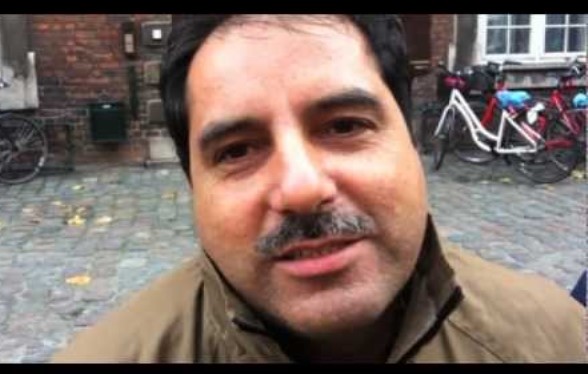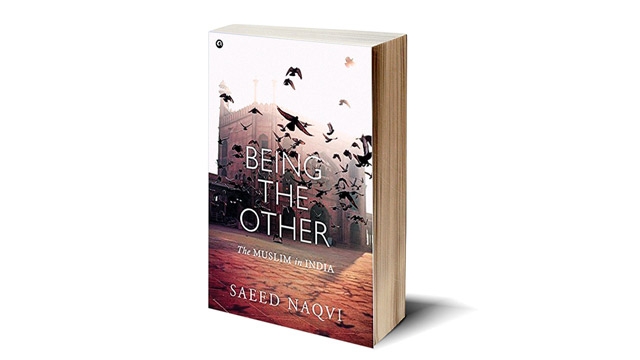Sophore (Kashmir), JAMMU & KASHMIR / NEW DELHI :

New Delhi:
Noted Journalist and Strategic Affairs Editor of English daily DNA Iftikhar Gilani has chosen for this year’s Shah Waliullah Award by Delhi-based the Institute of Objective Studies (IOS) for his outstanding contribution in journalism.
The prestigious award carries a memento and a cash of Rs One lakh and it was given to 11 illustrious persons so far since its inception in 1999 for their tremendous achievement in Social sciences, Islamic Studies, Law, and other subjects. It is notable that the Institute for the first time considered a journalist for its most coveted award instituted to keep alive the legacy of the great Islamic scholar Shah Waliullah Muhaddis Dehlavi.
He was selected by a jury consisted of Dr. Manzoor Alam (Chairman, IOS), Prof Mohsin Usmani, Prof Ishtiyaque Danish, Prof Afzal Wani and Prof Zahoor Ahmad Khan and headed by former Chief Justice of India Justice A M Ahmedi. The jury decided that Iftikhar was given the award for his contribution to ‘Media, Society and Indian Muslims’. And in the junior category, the jury selected Associate Prof (Dr) Nasheed Imtiyaz of Aligarh Muslim University for his work on psychology. This award carries a cash reward of Rs 25000.
Gilani hails from Sopore in North Kashmir and has been based in Delhi for last over 26 years who is one of most widely read journalists in South Asia. Currently, he is Editor (Strategic Affairs) and Chief of National Bureau of Daily News Analysis (DNA), published from Mumbai, Pune, Bangalore, Indore, and Jaipur. DNA is amongst India’s top five widely circulated English language newspapers with a circulation of over one million. Before joining DNA, he headed the Political Bureau at Tehelka.com and its business daily “Financial World”. Earlier, he also headed the Delhi Bureau of multi-lingual Kashmir Times, the widely circulated newspaper of Jammu and Kashmir published from Jammu and Srinagar simultaneously.
Besides this, he was also the Special Correspondent (India) for Daily Times, (English newspaper, Pakistan).
Gilani also covered India for Urdu Service of Radio Deutsche Well (DW), German Radio. His columns appeared regularly in The Friday Times, an esteemed weekly from Pakistan and Urdu daily Inquilab (India), and in Weekly Kashmir Life, published from Srinagar (Kashmir). Currently, also a columnist in a popular Urdu daily of Pakistan Dunya. These columns hare widely appreciated and reproduced. He had also worked for various national newspapers, news and feature agencies in India, notably in the Indian Express and the Pioneer. He has also headed a research project on “Insurgencies in South Asia”. Gilani has conferred the award for ‘Outstanding Contribution in Media’ by the government of Jammu and Kashmir in 2010, who began his career with Delhi-based multi-lingual feature syndicate “Feature And News Alliance”.
The author of 2005 Penguin book ‘My Days in Prison’. Urdu translation of his book won him India’s prestigious Sahitya Akademi award, in 2008. A visiting fellow of Dart Centre, Australia, a project of the Columbia University of Journalism, Iftikhar Gilani has been deputy chairman of Indian Parliament’s Press Advisory Committee and also vice-president of the Press Association of India. Currently, he is also a Trustee of Delhi Centre for Media Research and Publication Trust Having several research papers to his credit, he is also an external discussant at the Institute of Defence Studies and Analysis (IDSA), a premier security think-tank in India and a research advisor at the Centre for Land ware Studies (CLAWS), a strategic think-tank. He also widely traveled to many parts of the world including UK, Germany, Russia, Denmark, Pakistan, Iraq, Thailand, South Korea, Sri Lanka, Nepal, and Israel.
When this correspondent congratulated him for recieving the award, Gilani told in his usual humility that he did not deserve this prestigious award.
source: http://www.muslimmirror.com / Muslim Mirror / Home> Indian Muslim> Media / by Abdul Bari Masoud / January 29th, 2017









